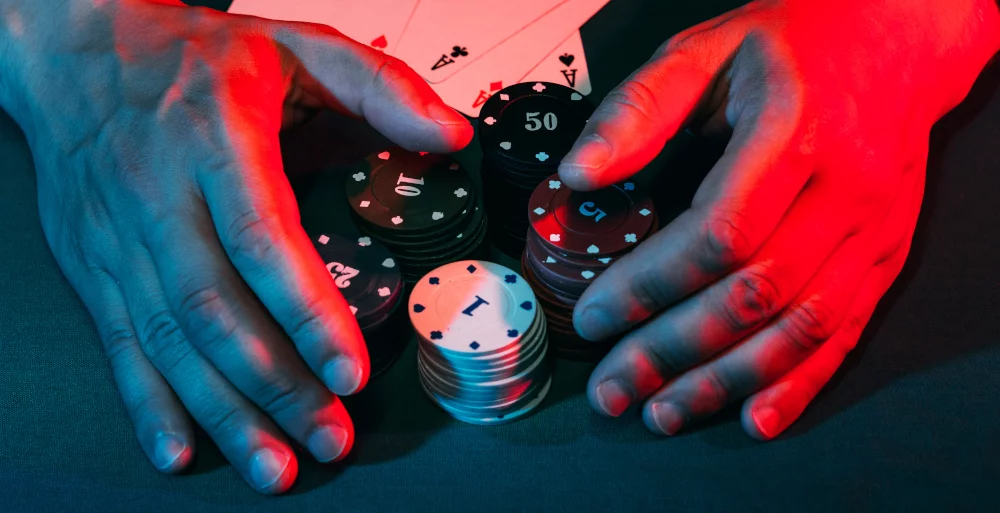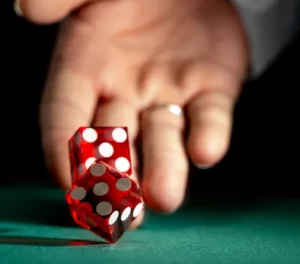
If you’ve spent time in casinos or online gaming communities, you’ve probably heard it, “90% of gamblers quit just before they win big.” It sounds motivational, almost poetic, a reason to stay in the game. But as with most popular sayings, there’s more to this story than meets the eye. This phrase is a spin-off of the old mining idiom, “Three feet from gold.” It describes miners giving up their claim just before striking a vein. In gambling, it suggests persistence pays off, that if you keep playing, your big win is just around the corner. But gambling doesn’t work like digging for gold. Games of chance are random, with each spin, deal, or roll existing in isolation. There’s no built-up momentum or hidden jackpot waiting for the stubborn player. Statistically, staying longer often just means spending more, not necessarily winning more.
The reason this myth feels so believable lies in human psychology. Humans are wired for patterns. We remember the one person who walked away, only to hear later someone else hit the jackpot. That sticks in our minds much more than the countless nights people played for hours and left with nothing. It’s called availability bias, our brains focus on memorable outcomes, not the whole picture. In the same way we remember the lottery winner but forget the millions who didn’t win, this idea reinforces itself in our minds through selective memory. We see the flash of the win but not the countless quiet losses stacked behind it.
This myth feeds into a well-known gambling trap, chasing losses. Players start thinking, “One more spin,” “Just a few more chips,” believing they’re on the verge of turning it all around. That thinking can turn entertainment into obsession, and financial harm. The reality is that every game, whether it’s roulette, slots, or bingo, is designed with a house edge. This ensures that over time, the casino wins. The odds are calculated not on persistence but on pure mathematics and probability. This is why responsible gaming policies and practices are so important. The smart move is to set limits, celebrate small wins, and understand that walking away isn’t quitting, it’s part of responsible play.
At Goldrush Casino, we see this balance play out every day. Our regulars know, winning happens, but it’s random. The real win is in enjoying the experience, socialising, relaxing, and knowing your limits. Watching people come together in our lounges shows us that the value isn’t just in jackpots, but in community. A round of bingo shared with friends, a moment of excitement during a draw, a conversation at the bar, these are the real takeaways that last longer than any payout.
The myth of quitting too soon might inspire persistence in mining, sports, or business. But in gambling, persistence doesn’t change the odds. Luck arrives when it does, staying or leaving doesn’t influence the next spin. Believing otherwise is what leads many into what experts call the gambler’s fallacy, the idea that previous outcomes affect future ones. In truth, every spin, roll, or deal is completely independent. This is not just a theory, it is hard-coded into the software of modern electronic bingo terminals. The random number generators that power these games do not remember your past plays. Each moment is new, unconnected to the last.
 Gamblers often share stories of the near-miss. That moment when they walked away and someone else hit a jackpot is told and retold until it becomes a personal parable. But for every such story, there are hundreds more that go untold, the nights when persistence only drained wallets further. The myth gives a sense of control in an environment built on chance. It plays into human desire for certainty, for a narrative that hard work or endurance must eventually pay off. In games of skill, that narrative holds weight. In games of chance, it is mostly illusion.
Gamblers often share stories of the near-miss. That moment when they walked away and someone else hit a jackpot is told and retold until it becomes a personal parable. But for every such story, there are hundreds more that go untold, the nights when persistence only drained wallets further. The myth gives a sense of control in an environment built on chance. It plays into human desire for certainty, for a narrative that hard work or endurance must eventually pay off. In games of skill, that narrative holds weight. In games of chance, it is mostly illusion.
This is where loyalty programmes like those offered at Goldrush can provide a better structure. Rather than chasing luck, players earn points and rewards based on their regular play, regardless of winning or losing. It shifts the focus from high-stakes risk-taking to sustained enjoyment and community involvement. Players get rewarded for participation rather than purely for outcome. It makes the experience more about shared moments and long-term engagement, not just the pursuit of elusive jackpots.
At the end of the day, understanding the myth is about understanding ourselves. It reflects a fundamental human trait, the belief in just-around-the-corner rewards. From ancient times, people have sought patterns in the stars, in weather, and in fortune. Gambling is simply a modern canvas for this age-old behaviour. Recognising this helps players approach the game floor with clearer eyes and steadier hearts. It allows for entertainment without illusion, enjoyment without the need for justification through myths.
Next time someone tells you “90% quit before they win big,” smile and enjoy the game for what it is, a moment of excitement, shared with others. And remember, the smartest gambler knows when to collect their chips and walk away. Choosing the right moment to leave the table or end a session isn’t failure, it’s wisdom. It’s about preserving the enjoyment of gaming rather than letting it turn into a pursuit that overshadows everything else. Because in the long run, the best wins aren’t just financial, they’re the ones that leave you smiling on the way home, satisfied with the evening, knowing you played with awareness, intent, and respect for both the game and yourself.







